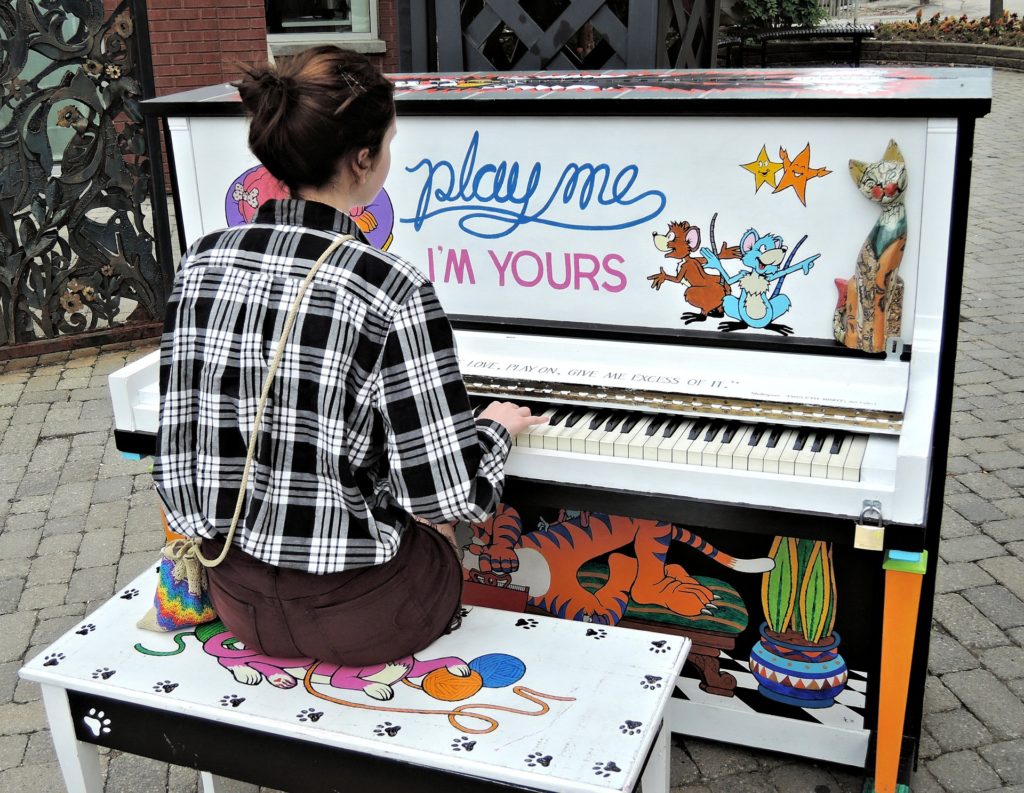Quick, what’s the number one thing keeping people from learning to play the piano? If you said not enough time, you’re right. We never seem to have enough hours in the day to do what we want to do.
I hear this complaint almost every day. Usually it goes something like this:
“I’ve always wanted to play the piano. Maybe one day. When the kids are grown (when I retire, when I have more time…).”
The thing is, most of us have more free time than we think. How long do we spend scrolling through our social media feeds? Or sitting in front of our TVs? Or more likely, doing both at the same time?
I’m not here to tell you how to use your time. But, if you think that you need to spend hours a day at the piano to learn how to play, I can tell you that you’re wrong!
Here’s how to make the best use of your piano time:
REALIZE THAT IT’S A PROCESS
Just like getting (and staying!) in shape (or losing weight), learning to play the piano is an ongoing process. There’s not arrival point. Really! Think about it.
Let’s say you want to lose 20 pounds. You can do all the usual things and achieve that goal. But, what then? How do you KEEP that weight off? Most logically, you need to continue the behaviors that helped you to achieve your goal in the first place.
It’s the same when learning to play the piano. Let’s say that you have your heart set on playing Chopin’s Prelude in E minor. And you follow my tutorial and achieve your goal. Congratulations!
Now what?
If you don’t play the piece for a while, guess what? You’ll forget how to play it. This happens to everyone, even professional musicians!
2. KNOW THAT YOU CAN DO JUST A FEW MINUTES A DAY
When you think of piano practice, do you picture a tortured artist toiling at the keys for hours at a time, sweat pouring down her face, fingers aching from effort, forgetting to eat or sleep?
Ok, that’s quite an exaggeration. But I kind of feel like people subconsciously believe this is the kind of situation they are getting themselves into when they decide to learn to play the piano.
I’m here to tell you that nothing could be further from the truth.
Even if you can only carve out about 10 minutes a day, you can learn to play the piano! The trick, if there is one, is to do it every day (or don’t miss more than a day or two in between practice sessions).
3. MAKE A PRACTICE PLAN
You get the best results when you plan your work and work your plan.
What does this mean? Let’s take those 10 minutes you have each day and make them pay off big time. Before you sit at your piano, decide what you want to accomplish that day. At first, make your goal much smaller than you think it should be. Much smaller. Bite off much less than you think you can chew. And stick to your goal!
For example, going back to our Chopin piece above. Your goal for the first day might be to watch the performance video to get a good idea of what you’re aiming for. Then, move on to the tutorial. Take the Part 1 Left Hand section, and watch just one minute of it. Replay that one minute, and this time, follow the example and play along. Keep repeating that one minute segment, with your goal being to play it smoothly and comfortably. It might take you 4 or 5 (or more!) repetitions to feel like you really have it. That’s ok! There’ no hurry.
When you feel like you can easily play it with the video, play that segment of the piece on your own. Repeat this several times.
Guess what? You’re done for the day. Get up and congratulate yourself on a job well done.
Day two, come back and repeat what you remember from day one, then tackle another minute of the video.
But, wait, won’t it take FOREVER to learn to play the piece?
No.
Something magical happens when you sit at the piano every day. You start to get “in shape”. Meaning that, you get better at learning and doing every time you practice. You learn faster, remember better, and your fingers and brain communicate more efficiently. The gains you make are exponential
4. WORK ON YOUR TECHNIQUE
Scales, exercises, arpeggios…blah! Who wants to do that boring stuff?
Well, not most people.
But, just like athletes who do cross training in order to excel at their sport, musicians do exercises to build their musical fitness. So, while a basketball player will never be called upon to do push-ups or squats in a game, you can be sure he or she has done plenty of these exercises “behind the scenes.”
It’s the same for pianists. We practice technique exercises to build certain skills that we then use when playing those beautiful and exciting pieces we love to play. So, going back to our 10 minute a day practice model, spend at least 20% of it (2 minutes) on some kind of technique exercises. Here are some exercises to start with.
5. GIVE YOURSELF A BREAK
By now, we’ve all seen those viral videos of 3-year-old virtuoso pianists tearing up the keys. Yes, they are cute. Yes, they are impressive. No, they are not your competition.
Comparing yourself and your progress to anyone is a losing game. After all, how anyone else plays the piano has nothing to do with you. There will always be people who are better than you and people who worse than you. So what?
Think about why you want to play the piano in the first place. It’s a deeply personal experience, with challenges and rewards that can only be experienced by the person doing it. There’s no competition here to be the “best” (youngest, flashiest) pianist. Do it for you. Celebrate yourself and your accomplishments as you celebrate others who have achieved what you want to achieve.
So, are you ready? Find those 10 minutes every day, sit at your piano and start playing. Let me know how you’re doing!
If you want a jump-start to learning to read music, check out my Piano Boot Camp course! Follow this link and buy the entire course for 9.99!


Totalement d’accord avec toi, je m’expliquais tout à l’heure à l’une de mes soeurs = s’octroyer un peu de temps car quand on veut, on peut ! Personnellement je me lève tous les jours une heure plus tôt, ça me donne le temps d’aller revisionner tout cela , ensuite je l’applique du mieux que je peux à ma cadence sans essayer de faire comme toi, chacun a sa perception et ses capacités dans tous les domaines. Jouer au piano me procure une sensation que je ne connaissais pas à ce jour, merci pour tous t’es excellents conseils Marina ☺
Thank you, Dominique! It’s true, we can make time for what we want, especially if we give ourselves permission to not be perfect!